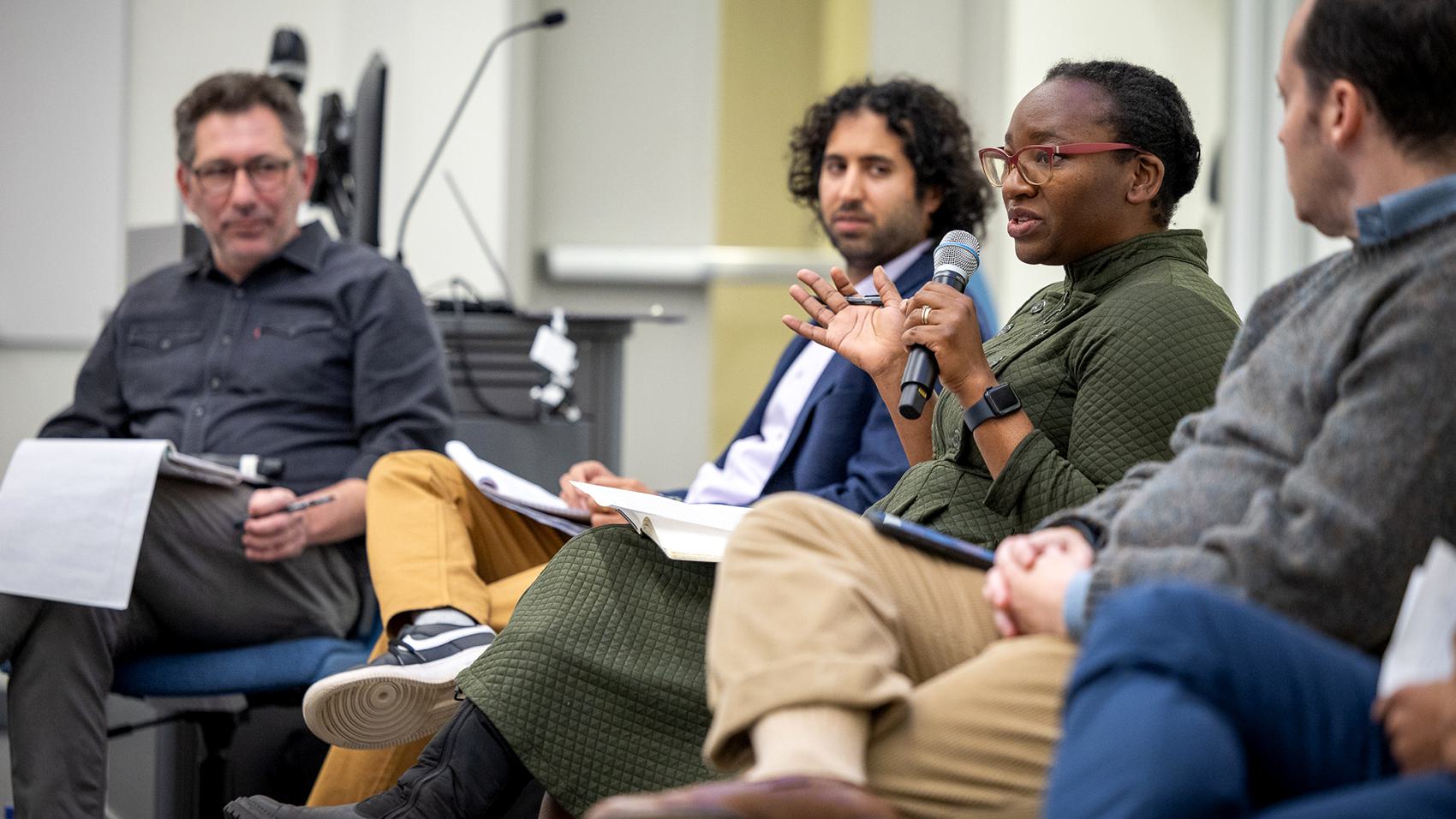Thirty Wellesley faculty members from across the College came together November 14 and 15 for the first Faculty and Researchers Symposium, organized by the Wagner Centers for Wellesley in the World. They participated in six panel discussions that demonstrated interdisciplinary approaches to addressing a range of issues, from public health to democratic challenges to technological disruption.
In her opening remarks, Stacie Goddard, Betty Freyhof Johnson ’44 Professor of Political Science and associate provost of the Wagner Centers for Wellesley in the World, said the symposium was created to “showcase how our faculty is taking on some of the most pressing global challenges.” Miranda Daniloff Mancusi, executive director of the Wagner Centers, said she hopes the centers will be a “hub of global engagement” that in part amplifies faculty research.
During the panel on public health, professors from the departments of biological sciences, psychology, economics, and neuroscience discussed issues related to health, from the molecular level to public policy, and how to bring about change. For example, panelist Courtney Marshall, Kresa Family Assistant Professor of Neuroscience, who researches the underlying pathological mechanisms of Alzheimer’s disease, said she teaches her students to recognize the ways inequities have shaped Alzheimer’s research so that they will be aware of historical context in their future careers. That’s “how I hope to kind of change and have an effect in the world,” she said.

Ismar Volić, professor of mathematics and director of the Institute for Mathematics and Democracy, moderated a conversation with his colleagues from a range of disciplines about the ways their interests connect to the challenges facing democracy worldwide. Panelist Eric Jarrard, assistant professor of religious studies, said people may wonder what “a guy who studies a document that is between 2,500 and 4,000 years old has to do with contemporary politics,” but he has found his research to be particularly relevant recently as he observes “a rise in the use of the Bible to justify federal policies.” Chipo Dendere, assistant professor of Africana studies, shared her work on the impact of migration and death on elections, and Maneesh Arora, assistant professor of political science, explained his young voter panel research project.
Lorraine C. Wang Professor of English Dan Chiasson moderated the symposium’s final panel, about time and memory. The discussion ranged from a very literal examination of time, such as how long people spend waiting for trials in courthouses across the United States, to more abstract observations, such as how art is preserved across centuries.
The symposium illustrated the interdisciplinary approach of Wellesley’s curriculum, which broadens the horizons of students and faculty alike. Pinar Keskin, associate professor of economics and a member of the public health panel, said she is encouraged at the College to do research that speaks to her interests, even if it reaches beyond the boundaries of her department.
“The reason that I got into academia was because I loved ideas,” said Goddard in her closing remarks. “I love playing with ideas. I love talking about ideas. I love being in a room with so many ideas. And I love being in this room with all of you, being able to play with these ideas in so many different forms, but also to realize the divide that people have set up between [our fields] doesn't exist.”
-

-

Students attended the panels and took the opportunity to ask questions about the research faculty presented.
